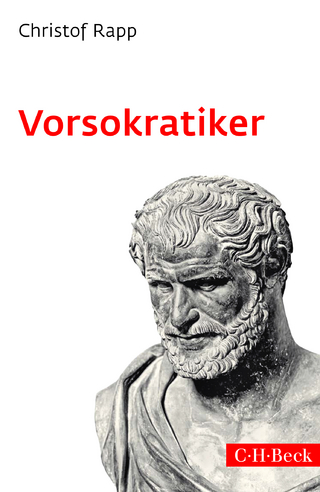
Aristotle on Religion
Seiten
2019
Cambridge University Press (Verlag)
978-1-108-40101-2 (ISBN)
Cambridge University Press (Verlag)
978-1-108-40101-2 (ISBN)
Provides a unified and comprehensive account of the role of traditional religion in Aristotle's theory, and discusses the influence of Aristotle's view of religion on medieval thinkers. The book will appeal to those interested in ancient Greek philosophy, medieval philosophy, the philosophy of religion and political philosophy.
Aristotle is a severe critic of traditional religion, believing it to be false, yet he also holds that traditional religion and its institutions are necessary if any city, including the ideal city he describes in the Politics, is to exist and flourish. This book provides, for the first time, a coherent account of the socio-political role which Aristotle attributes to traditional religion despite his rejection of its content. Mor Segev argues that Aristotle thinks traditional religion is politically necessary because it prepares the ground for what he considers the pinnacle of human endeavor: attaining the knowledge of first philosophy, whose objects are real beings worthy of being called gods. Developing this interpretation, Segev goes on to analyze Aristotle's references to the myths of traditional Greek religion, and to assess his influence on medieval Jewish and Christian theology and philosophy of religion.
Aristotle is a severe critic of traditional religion, believing it to be false, yet he also holds that traditional religion and its institutions are necessary if any city, including the ideal city he describes in the Politics, is to exist and flourish. This book provides, for the first time, a coherent account of the socio-political role which Aristotle attributes to traditional religion despite his rejection of its content. Mor Segev argues that Aristotle thinks traditional religion is politically necessary because it prepares the ground for what he considers the pinnacle of human endeavor: attaining the knowledge of first philosophy, whose objects are real beings worthy of being called gods. Developing this interpretation, Segev goes on to analyze Aristotle's references to the myths of traditional Greek religion, and to assess his influence on medieval Jewish and Christian theology and philosophy of religion.
Mor Segev is Assistant Professor of Philosophy at the University of South Florida. His work includes articles published or forthcoming in Oxford Studies in Ancient Philosophy, the British Journal for the History of Philosophy, Polis, History of Philosophy Quarterly and Classical World.
Introduction; 1. Aristotle's rejection of the content of traditional religion; 2. Traditional religion and its natural function in Aristotle; 3. Humans, 'eternal humans' and Gods: the usefulness of traditional Gods for the imitation of the divine; 4. Aristotle on the possible uses of the myths of 'the Ancients'; 5. The influence of Aristotle's view of religion on medieval Jewish and Christian thought; 6. Conclusion.
| Erscheinungsdatum | 12.08.2019 |
|---|---|
| Zusatzinfo | Worked examples or Exercises; 2 Tables, black and white; 3 Line drawings, black and white |
| Verlagsort | Cambridge |
| Sprache | englisch |
| Maße | 151 x 229 mm |
| Gewicht | 300 g |
| Themenwelt | Geisteswissenschaften ► Philosophie ► Philosophie Altertum / Antike |
| Geisteswissenschaften ► Religion / Theologie | |
| ISBN-10 | 1-108-40101-5 / 1108401015 |
| ISBN-13 | 978-1-108-40101-2 / 9781108401012 |
| Zustand | Neuware |
| Informationen gemäß Produktsicherheitsverordnung (GPSR) | |
| Haben Sie eine Frage zum Produkt? |
Mehr entdecken
aus dem Bereich
aus dem Bereich
mit Sokrates, Seneca, Platon & Co. im Gespräch
Buch | Hardcover (2023)
FinanzBuch Verlag
CHF 25,20


